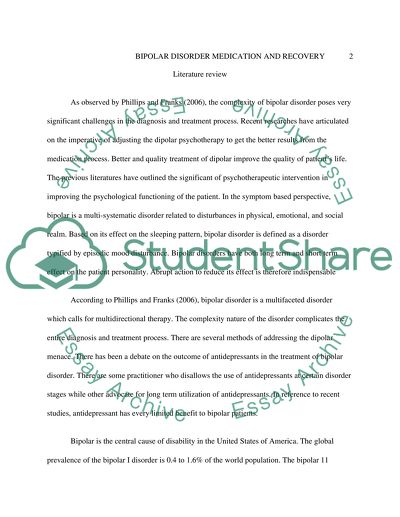Cite this document
(“Bipolar Disorder - Medication and Recovery Dissertation”, n.d.)
Retrieved from https://studentshare.org/psychology/1593285-bipolar-disorder-medication-and-recovery
Retrieved from https://studentshare.org/psychology/1593285-bipolar-disorder-medication-and-recovery
(Bipolar Disorder - Medication and Recovery Dissertation)
https://studentshare.org/psychology/1593285-bipolar-disorder-medication-and-recovery.
https://studentshare.org/psychology/1593285-bipolar-disorder-medication-and-recovery.
“Bipolar Disorder - Medication and Recovery Dissertation”, n.d. https://studentshare.org/psychology/1593285-bipolar-disorder-medication-and-recovery.


